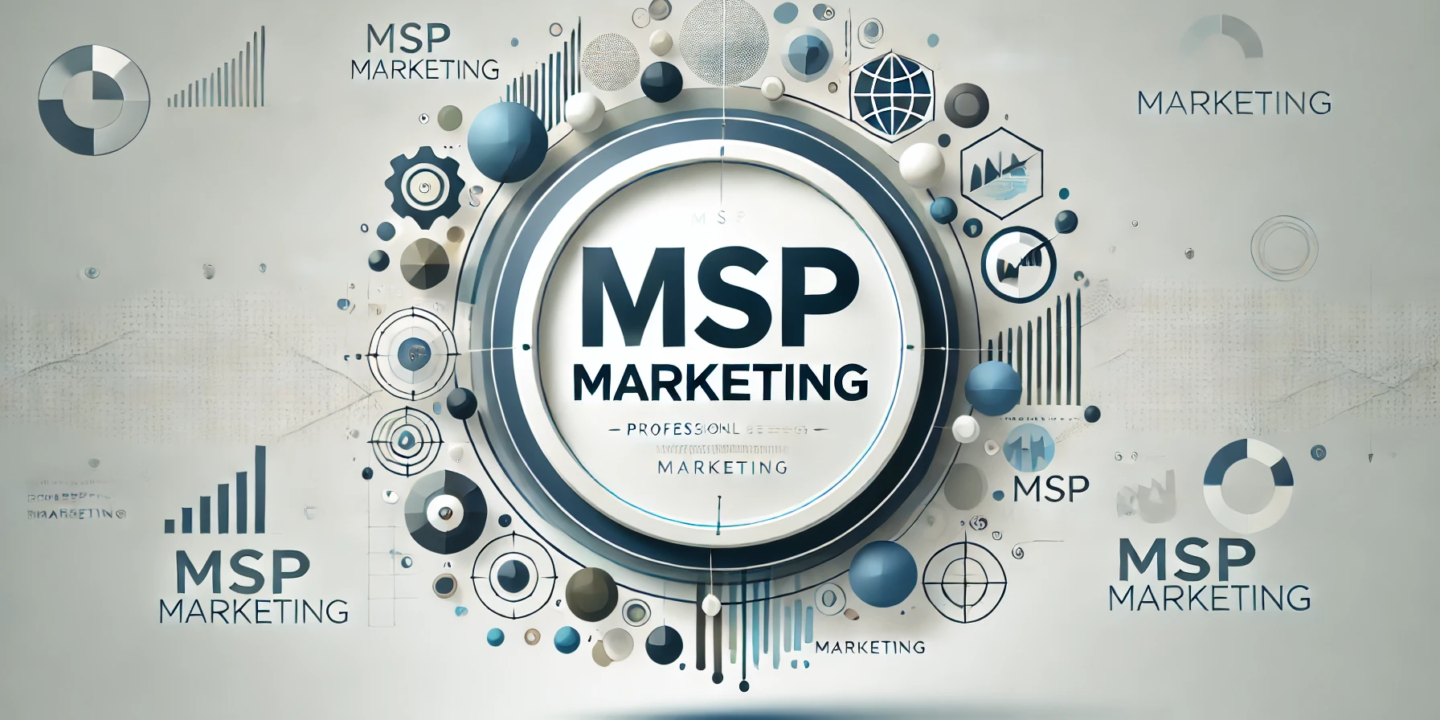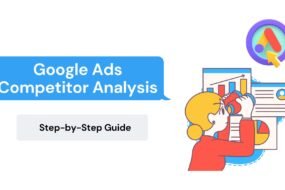
In the competitive world of IT services, Managed Service Providers (MSPs) play a crucial role in helping businesses optimise their technology infrastructure. However, to succeed and stand out in this highly competitive field, MSPs need a strong marketing strategy that goes beyond traditional approaches. Enter MSP marketing—a specialised approach tailored to the unique needs of MSPs. In this blog, we will delve into the concept of MSP marketing, its importance, the strategies that work, and how to craft an effective MSP marketing plan.
What is MSP Marketing?
MSP marketing refers to the strategic efforts undertaken by Managed Service Providers to attract potential clients, build brand awareness, and convert leads into long-term business relationships. Since MSPs operate in a B2B environment, their marketing strategies are different from typical consumer marketing efforts. MSP marketing focuses on demonstrating expertise, offering customised IT solutions, and addressing specific business pain points.
Why is MSP Marketing Important?
In the IT services industry, competition is fierce. Many companies offer similar services, making it difficult for an MSP to stand out. A well-executed marketing plan can help an MSP:
- Generate qualified leads: MSP marketing strategies target decision-makers such as CIOs, IT managers, and business owners who need IT support.
- Increase brand awareness: A comprehensive marketing strategy will ensure that potential clients recognise and trust your MSP brand.
- Build trust and authority: When your marketing content highlights your expertise, it builds trust with potential clients, encouraging them to choose your services.
- Boost client retention: Effective marketing doesn’t end at customer acquisition; it also helps maintain existing client relationships through consistent communication and value-added content.
What Are the Key Components of an Effective MSP Marketing Strategy?
Creating a successful MSP marketing plan requires understanding your target audience, leveraging digital marketing tools, and offering value-driven solutions. Below are the key components to consider when developing your MSP marketing strategy:
Define Your Target Audience
The first step in creating an MSP marketing strategy is defining your target audience. Unlike traditional consumer marketing, MSP marketing focuses on businesses, so you need to be clear about the types of organisations you want to serve.
- Size of business: Do you want to target small and medium-sized businesses (SMBs), or are you aiming for larger enterprises?
- Industry focus: Some MSPs specialise in serving particular industries such as healthcare, finance, or legal services. Narrowing down your target audience can help tailor your messaging.
- Decision-makers: In most cases, MSP marketing targets IT managers, CIOs, and business owners who have decision-making authority when it comes to IT infrastructure.
Build a Strong Online Presence
In today’s digital-first world, having a strong online presence is essential for any MSP looking to grow its business. This involves several key components:
- Website Optimization: Your website is often the first point of contact for potential clients. Ensure that it is professional, easy to navigate, and SEO-optimized. This includes using the right keywords (like MSP marketing, managed IT services, etc.) in your content, optimising for mobile devices, and ensuring fast load times.
- Content Marketing: MSP marketing thrives on creating content that educates and adds value to your audience. By producing informative blogs, whitepapers, case studies, and videos, you can demonstrate your expertise. This content should address the specific pain points of your audience and showcase how your MSP services solve their problems.
- Social Media Marketing: While social media might be one of many lead generators for MSPs, platforms like LinkedIn and Twitter allow you to build relationships with industry leaders and decision-makers. Regularly posting industry insights, sharing blog posts, and engaging with your audience can position you as a thought leader.
Leverage SEO to Attract Organic Traffic
Search engine optimisation (SEO) is an integral part of any MSP marketing strategy. When decision-makers search for terms like “Managed IT services” or “MSP marketing,” you want your business to appear at the top of search results. Here’s how you can optimise your website for SEO:
- Keyword Research: Start by researching relevant keywords that your target audience is likely to search for. Use tools like Google Keyword Planner or SEMrush to find keywords such as “IT support for small businesses,” “managed IT services,” or “cybersecurity for businesses.”
- On-Page SEO: Ensure your website’s meta titles, descriptions, headings, and content include the keywords you’ve researched. However, avoid keyword stuffing, as it can harm your search rankings.
- Local SEO: If your MSP serves specific geographic areas, local SEO can be extremely beneficial. Optimise your Google My Business listing and ensure your location-based keywords (e.g., “IT support in [city]”) are prominent.
Utilise Email Marketing
Email marketing remains one of the most effective ways to nurture leads and keep your audience engaged. A well-thought-out email marketing campaign can help MSPs stay top-of-mind for potential clients, especially those who may not be ready to make a purchasing decision right away. Here are some strategies to consider:
- Segment Your Audience: Not all prospects have the same needs. Segment your email list based on factors like company size, industry, and where the lead is in the sales funnel.
- Offer Value: Rather than sending sales-heavy emails, focus on providing valuable insights, such as case studies, industry reports, and tips for improving IT infrastructure.
- Automate the Process: Use email marketing platforms like HubSpot or Mailchimp to automate email workflows, ensuring that prospects receive timely and relevant content.
Leverage Paid Advertising (PPC)
Pay-per-click (PPC) advertising, particularly on platforms like Google Ads, can be a quick way to get in front of potential clients. By bidding on relevant keywords, your MSP can appear at the top of search results for targeted queries. Here’s how to maximise your PPC efforts:
- Target Relevant Keywords: Focus on high-intent keywords like “MSP for healthcare” or “Managed IT services near me.”
- Create Compelling Ad Copy: Your ad copy should clearly communicate your unique value proposition, offering potential clients a reason to click on your ad.
- Monitor and Optimize: PPC campaigns require constant monitoring and optimisation. Track performance metrics such as click-through rates (CTR) and conversion rates to ensure your campaigns are yielding positive ROI.
Partner with Industry Leaders
MSP marketing doesn’t always have to be about going it alone. By partnering with key players in the industry, you can expand your reach and credibility. This can include:
- Vendor Partnerships: Partnering with leading technology vendors like Microsoft, Cisco, or AWS can boost your MSP’s credibility and provide access to co-marketing opportunities.
- Referral Programs: Create referral programs where satisfied customers or partners can refer new businesses to you in exchange for incentives.
Measure and Refine Your Strategy
The final piece of an effective MSP marketing strategy is continuously measuring and refining your efforts. MSP marketing is not a one-size-fits-all approach, and strategies that work today may need to be adjusted tomorrow. Key metrics to track include:
- Website Traffic: Monitor your website’s traffic using tools like Google Analytics to see how your SEO and content marketing efforts are performing.
- Lead Generation: Track the number of leads generated from different marketing channels, including organic search, paid ads, and email marketing.
- Conversion Rates: Measure how well your marketing campaigns are converting leads into paying customers. This can help you identify areas for improvement.
What Are the Best Practices for MSP Marketing?
- Know Your Audience: One of the biggest mistakes MSPs make is not clearly defining their target audience. Knowing the specific industries or types of businesses you serve can help you create personalised content that resonates with their pain points.
- Show, Don’t Tell: Rather than telling potential clients about your services, show them the results. Use testimonials, case studies, and statistics to prove the value you provide.
- Emphasize Security: In an age where cyber threats are increasing, businesses prioritize security. Highlight how your MSP helps protect against cyberattacks, ensures data privacy, and complies with industry regulations.
- Optimise for Mobile: Many business owners and decision-makers are accessing your website from their phones. Make sure your website is mobile-friendly to provide a seamless user experience.
- Consistency is Key: Whether you’re posting blog content or sending out emails, consistency is vital. Regular engagement keeps you at the top of potential clients’ minds and builds a sense of reliability.
What Are the Challenges in MSP Marketing?
While MSP marketing offers numerous opportunities to drive growth, it also presents certain challenges that Managed Service Providers (MSPs) need to navigate carefully. Here are the major challenges in MSP (Managed Service Provider) marketing:
- Complex Target Audience: MSPs often serve a wide range of industries, making it difficult to create marketing messages that resonate with everyone.
- Building Trust: Potential clients may be wary of outsourcing their IT services, requiring MSPs to work harder to build credibility and trust.
- Intense Competition: The MSP market is saturated with providers, making it challenging to stand out and highlight unique value propositions.
- Technical Jargon: Explaining complex IT solutions in a way that non-technical clients understand can be difficult, often leading to miscommunication or loss of interest.
- Long Sales Cycles: Businesses often take longer to make decisions about their IT services, extending the sales cycle and making it harder to close deals quickly.
- Differentiation: Many MSPs offer similar services, so differentiating from competitors and emphasising unique offerings can be a challenge.
- Client Retention: In a competitive market, retaining existing clients can be as tough as acquiring new ones, as clients may be tempted by lower-cost competitors.
- Adapting to Trends: Staying updated with constantly evolving IT trends and marketing strategies is essential but challenging for many MSPs.
Frequently Asked Questions (FAQs)
Q1. What is MSP marketing?
Answer: MSP marketing refers to the strategies and activities used by Managed Service Providers (MSPs) to promote their services, generate leads, and attract new clients. It focuses on educating potential clients about the value of outsourced IT services and how MSPs can solve their business challenges.
Q2. Why is marketing important for MSPs?
Answer: Marketing is essential for MSPs to increase brand awareness, generate new leads, build trust with potential clients, and retain existing customers. As competition grows, effective marketing helps differentiate your MSP and showcases your expertise in managing IT services.
Q3. What marketing strategies are most effective for MSPs?
Answer: Some of the most effective marketing strategies for MSPs include content marketing (blogging, case studies, whitepapers), search engine optimisation (SEO), email marketing, social media marketing (especially LinkedIn), paid advertising (Google Ads), and webinars or workshops.
Q4. How can MSPs generate leads through marketing?
Answer: MSPs can generate leads by using inbound marketing strategies such as SEO, content marketing, and lead magnets (e.g., downloadable guides or whitepapers). Paid advertising campaigns, social media engagement, and referral programs can also help attract qualified leads.
Q5. What should an MSP website include to attract clients?
Answer: An MSP website should include clear service descriptions, case studies, client testimonials, a blog with educational content, and optimised calls-to-action (CTAs). It should also be mobile-friendly, fast, and optimised for search engines to increase visibility.
Conclusion
MSP marketing requires a strategic approach that combines education, relationship-building, and demonstrating value. By focusing on content marketing, SEO, email outreach, social media, and paid advertising, you can build a strong marketing foundation that attracts potential clients and retains existing ones.
The key is to stay consistent, understand your audience, and always demonstrate how your services can help businesses solve their IT challenges. With a well-planned MSP marketing strategy, you can position your company as a trusted partner for managed services, driving growth and success in a competitive marketplace.








No Comments